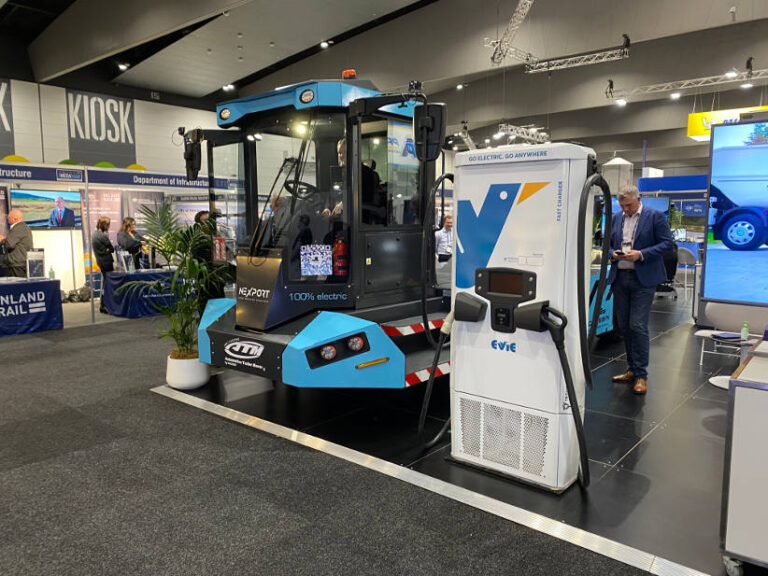Truck width rules, steer axle mass, and fuel standards are out of step with international regulation, creating an expensive modification process for selling a vehicle into the Australian market, and this needs to change, said the authors of the 20-page report “Electric trucks: Keeping shelves stocked in a net zero world.”
The authors, the ATA (Australian Trucking Association) and the EVC (Electric Vehicle Council) said alignment of standards would simplify the import process, making it more efficient and cost effective for manufacturers to import electric trucks, and ultimately provide more choice for operators.
The freight sector is responsible for about 8 percent of Australia’s total emissions and with all Australian governments committed to net-zero by 2050 the last internal combustion engine trucks must be sold by 2040, said the report. “This target cannot be achieved without decarbonising road freight and the broader transport sector.”
The average age of trucks in Australia is between 10 and 15 years. “The age of the truck fleet in Australia results in higher emissions produced by the sector, as older vehicles tend to be more inefficient, consuming more fuel and contributing more damage to the environment. There is an immediate need to accelerate the uptake of electric trucks in Australia,” the report said.
International experience shows light and medium duty truck applications are deployable now, and are producing total-cost-of-ownership comparisons that are at parity with internal combustion engine trucks.
In Europe, adoption of electric trucks is now driven mainly by competitive total-cost of ownership, better driver comfort, lower noise levels and air quality benefits, according to another report — from the European Federation for Transport and Environment.
In Australia, “The uncertain policy environment, limited model availability, lack of charging infrastructure, limited consumer awareness, and restrictive Australian Design Rules were identified as key barriers to the electric freight transition,” said Behyad Jafari, CEO of the Electric Vehicles Council.
Government policy should enable trucking operators to choose the best technology fit for their business, the report said.
It makes 10 recommendations:
- truck width should be increased
- steer axle mass concession for one tonne electric trucks
- mandate Euro VI by 2025
- exempt electric trucks from curfews
- incentive payments for charging infrastructure at depots
- invest in public charging infrastructure for trucks en route
- incentive payment to purchase electric trucks
- exempt stamp duty for electric trucks
- adopt global MoU for zero emissions medium and heavy duty vehicles
- determine skills needed.
The report was prepared after a series of workshops with 50 participating organisations including fleet operators and truck manufacturers.






